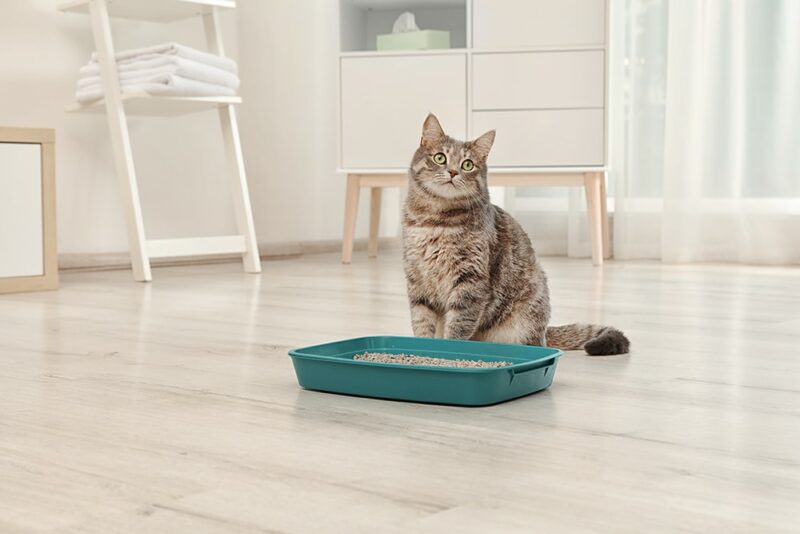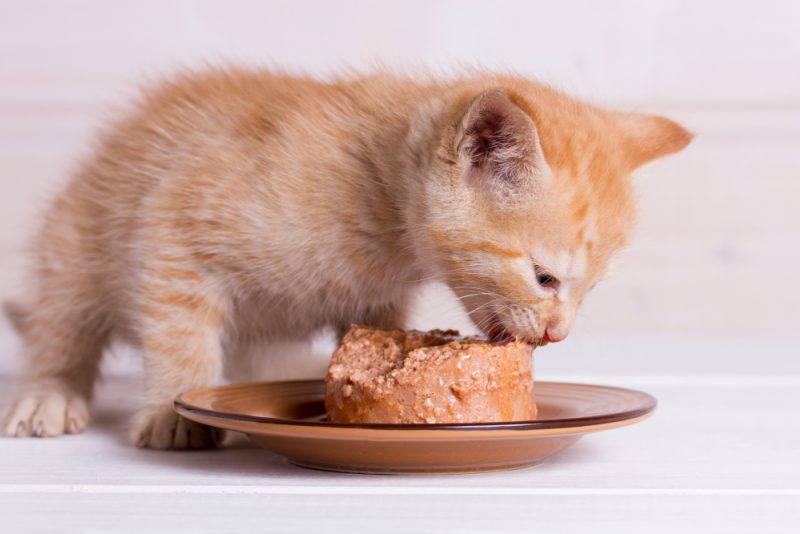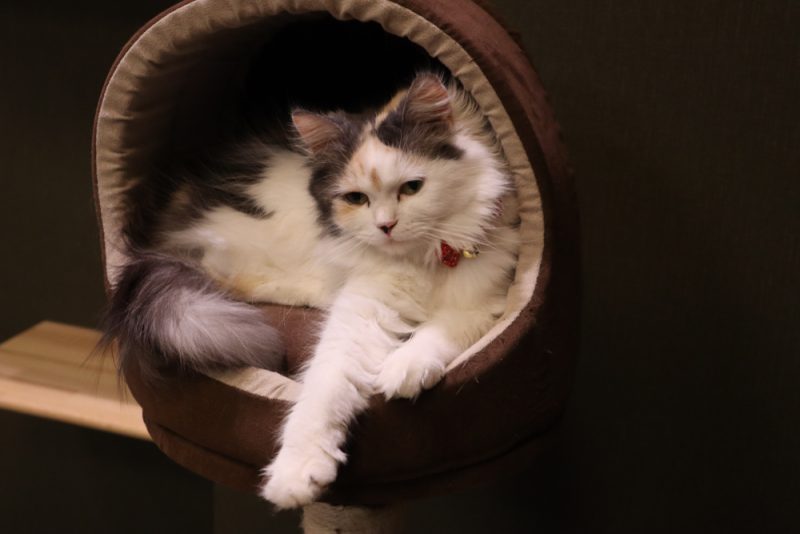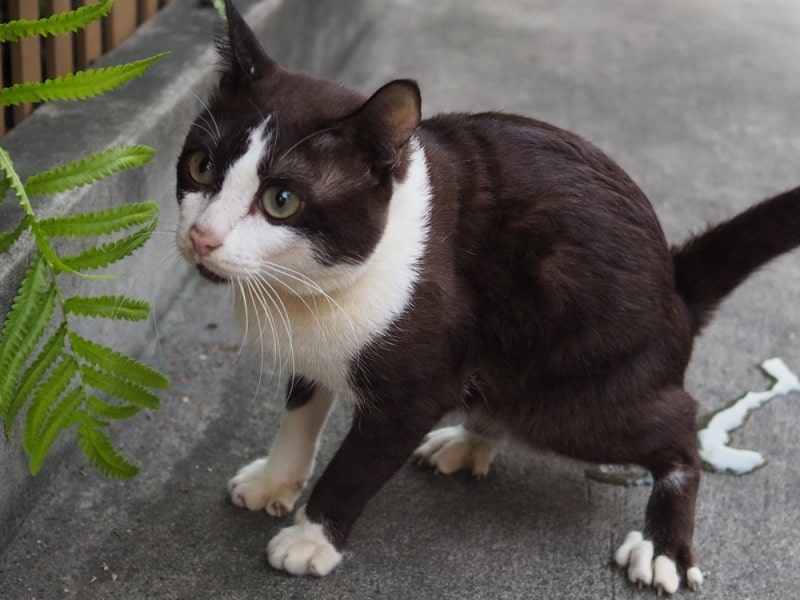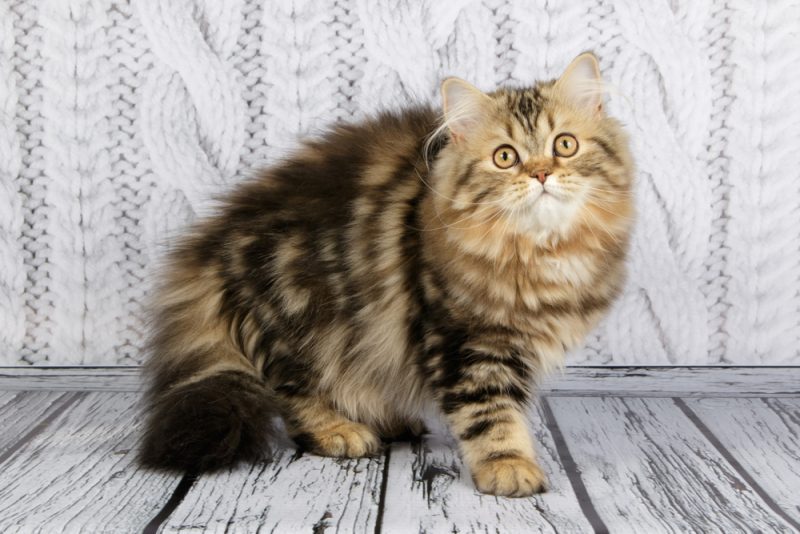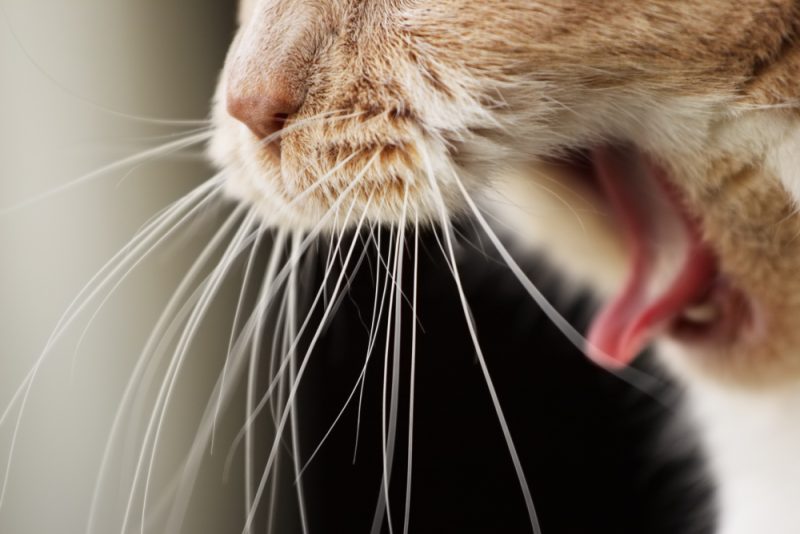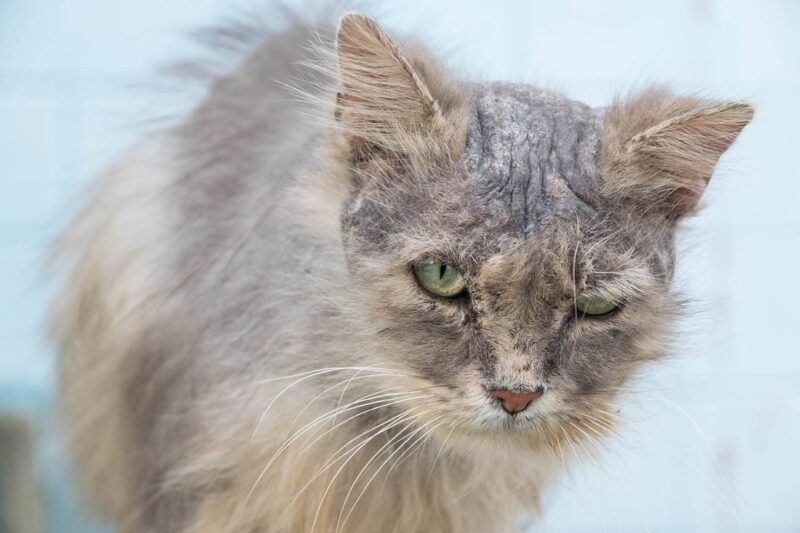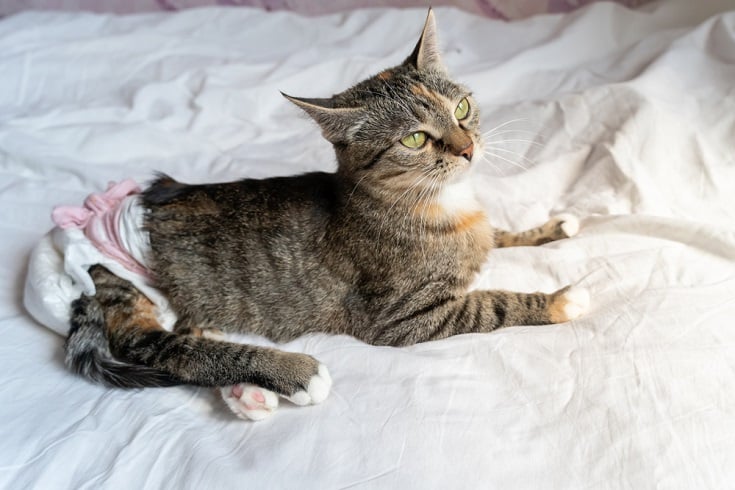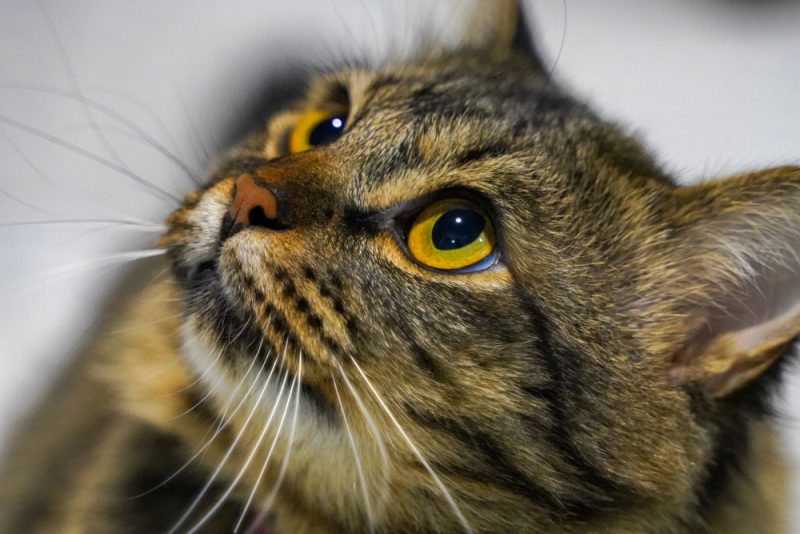Urinary blockages in cats are one of the most serious medical issues that cat owners and veterinarians alike must deal with. True blockages represent emergencies, as a blockage can quickly lead to electrolyte imbalances that can cause serious consequences, such as changes to heart rate, toxin buildup within the body, and death, if not treated in a timely manner.
Learning to recognize the symptoms of a urinary blockage is critical if you own a cat. Blockages are often most common in younger male cats, though rarely, older males can experience a blockage as well. Females are less susceptible to blockages, as their urethra is larger in diameter.
Causes of blockages can vary from crystals, to spasms, to urinary stones. Care of a blockage always warrants a veterinary visit, sometimes emergent. Read on to learn more about urinary blockages in cats, preventative care, and what to do to help your cat in the event that they experience one.

What Are the Causes of Urinary Blockages in Cats?
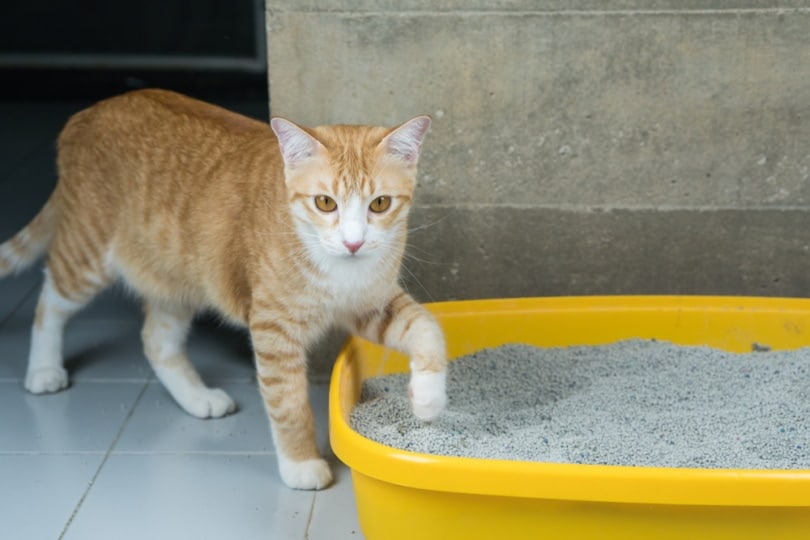
Urinary blockages in cats occur when the urethra, which allows urine to flow from the bladder to the outside of the body, becomes blocked. Typically, this involves a physical obstruction, such as by stones or crystals, but it can also be functional, due to a spasm of the urethra.
Typical crystals include calcium oxalate and struvite crystals. Sometimes, these are found in a mucus plug.
Stones are often comprised of the same minerals in cats. Data remains inconclusive as to the underlying cause of stones, although diet—including types, moisture content, and ingredients—have all been suggested at possibly playing a role.
Where Are Signs of Urinary Blockages in Cats?
Signs of urinary blockages can vary, depending on the length of time the blockage has occurred, and whether it is partially or fully obstructing. They can impact almost any organ system, and can include the following:
- Difficulty walking, including bumping into things or seeming uncoordinated
- Lethargy
- Anorexia
- Vomiting
- Straining to urinate
- Not producing urine
- Vocalizing in the litter box
- Collapse
- Fast or slow heart rate
- Panting
- Vocalizing when picked up
- Abdominal pain
- Drooling
- Fast breathing
- Blood in the urine
- Urine outside the box
- Small amounts of urine
What Are the Potential Dangers of Urinary Blockages in Cats?
Once a blockage occurs, elements of normal metabolism that the body typically excretes through urination, including potassium, creatinine, and urea, begin to build up. These can create toxicities, leading to dysfunction of various organ systems, lethargy, and if not resolved quickly, even death.

Frequently Asked Questions (FAQs)
Are male and female cats equally affected?
Generally not. Most cases of urinary blockages tend to be with male cats. Often these are young males, as well, which is hypothesized to occur due to the better function of the kidneys in younger cats.
Female cats have a larger diameter urethra, therefore, they are less prone to blockages. Their urethra also has a shorter distance, and runs a more straightforward path.
What should I do if I suspect my cat might have a urinary blockage?
If you suspect your cat might have a urinary blockage, contact your veterinarian immediately. This is truly an emergency situation in many cases, and urgent veterinary guidance is critical.
If you need to speak with a vet but can't get to one, head over to PangoVet. It's an online service where you can talk to a vet online and get the advice you need for your pet — all at an affordable price!

How is a urinary blockage in cats diagnosed?
A physical exam will always be the first order of business. Secondary measures often include bloodwork to measure various electrolytes and blood chemistries, electrocardiograms (if there are concerns about the heart), and sometimes, x-rays of the abdomen and ultrasound scans of the bladder. Often, the feel of a cat’s bladder and their general presenting signs can give a good indication of whether or not they might be blocked.
What are the treatment options for urinary blockages in cats?
Treatment will depend on how sick the cat is, and how long the blockage has been going on. In severe cases, cats will need hospitalization and intensive care, sometimes for a few days, or longer. In less severe cases, simply removing or resolving the blockage, while under sedation or anesthesia, may be enough.
Treatment can include medications to stabilize any electrolyte changes, medications to help with nausea, pain relievers, and IV fluids to help flush the urinary system and body of toxins. This is one of the more complicated feline diseases to treat, and requires frequent and close monitoring.
Conclusion
Urinary blockages in cats are not to be taken lightly, as they can cause severe illness, and even death if not treated in a prompt and appropriate manner. Therefore, any cat with a suspected urinary blockage should immediately receive medical attention for further evaluation of their concerns.
Featured Image Credit: New Africa, Shutterstock
